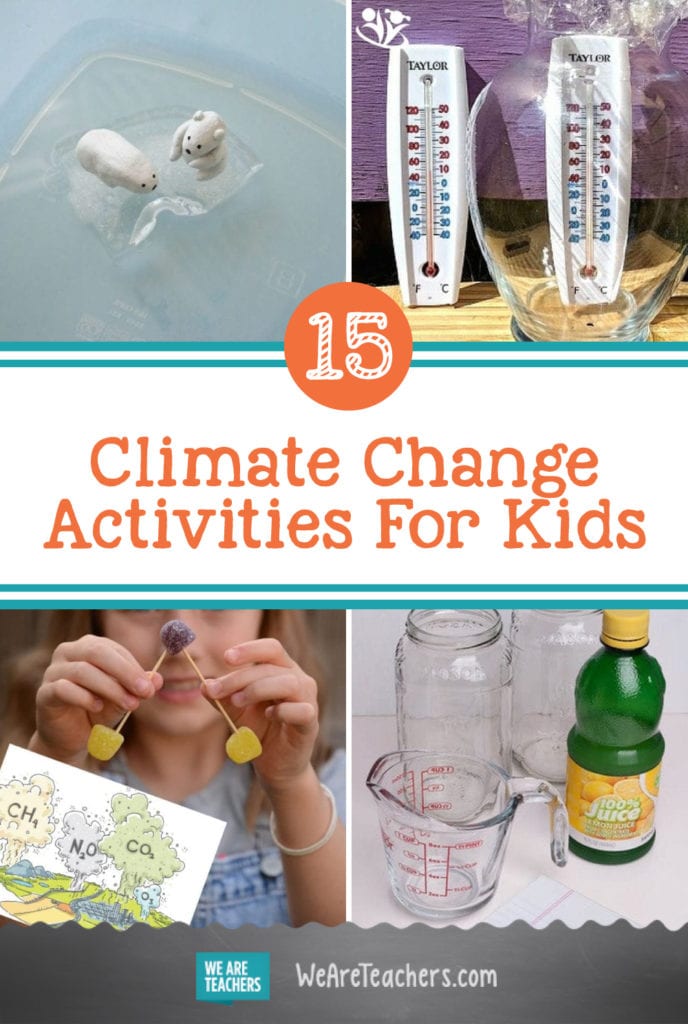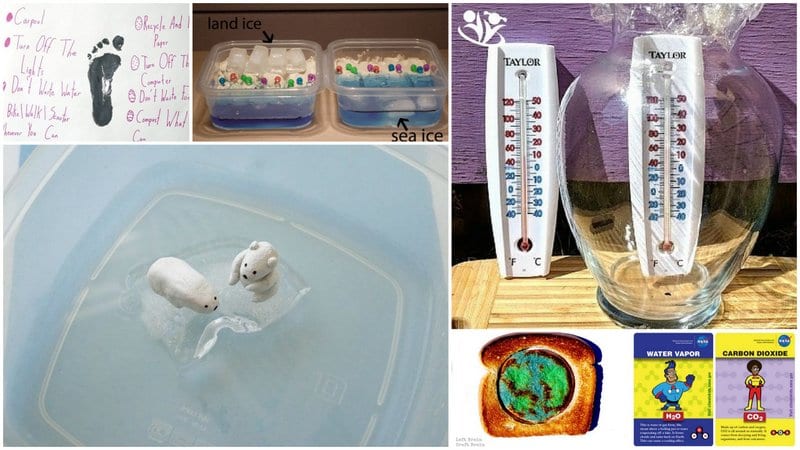Climate change is one of those important topics that can be hard to tackle in the classroom. Some teachers face opposition from parents, communities, or even school curriculum requirements that deny the existence or importance of climate change. But it’s vital to give kids the facts by using climate change activities that help them understand what’s taking place—and why it matters. Try some of these ideas with your students, accompanied with discussion about what kids can do to help keep our planet healthy for years to come.
1. Inspire your students to think locally
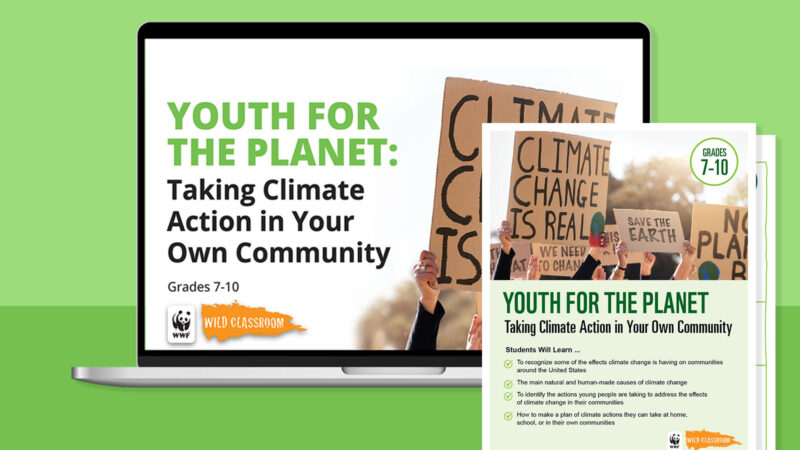
Climate change can feel like an insurmountable problem to many students. How can they have a meaningful impact on this global issue? The right resources can make all the difference in helping young people see how they can take action in their own community to make a real difference. This climate action resource kit from World Wildlife Fund’s Wild Classroom contains an informative slideshow as well as several lesson plans that are a perfect place to start.
2. Take part in the World’s Largest Lesson
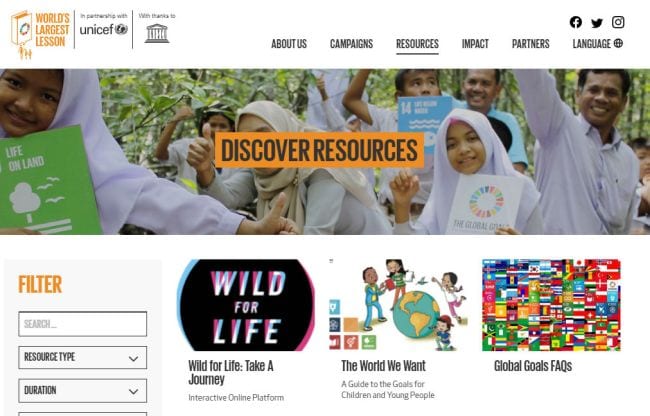
In partnership with UNICEF, World’s Largest Lesson promotes use of the Sustainable Development Goals in learning so that children can contribute to a better future for all. Learn more about their videos, lessons, and resources here.
3. Understand the difference between climate and weather
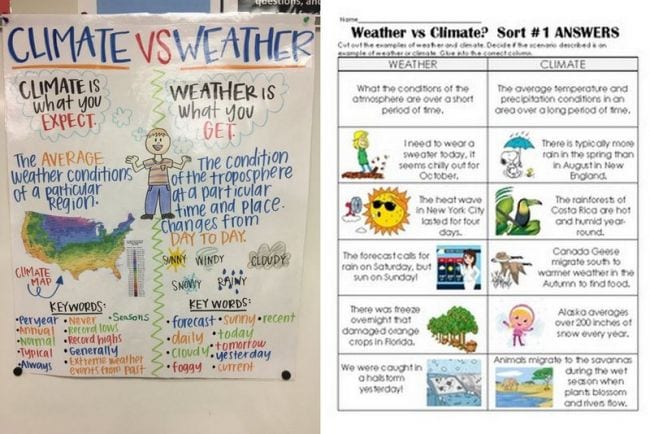
One common refrain you might hear is, “It snowed 20 inches today, so explain how global warming is real.” That’s when it’s time to tackle the difference between weather (the current conditions) and climate (the average of those conditions over time in a particular region). Make an anchor chart like this one from Hayley Taylor on Pinterest. Then try a sorting activity to help kids understand the difference between the two. You can make your own cards, or find them on sites like Teachers Pay Teachers.
4. Measure temperatures to learn about the greenhouse effect
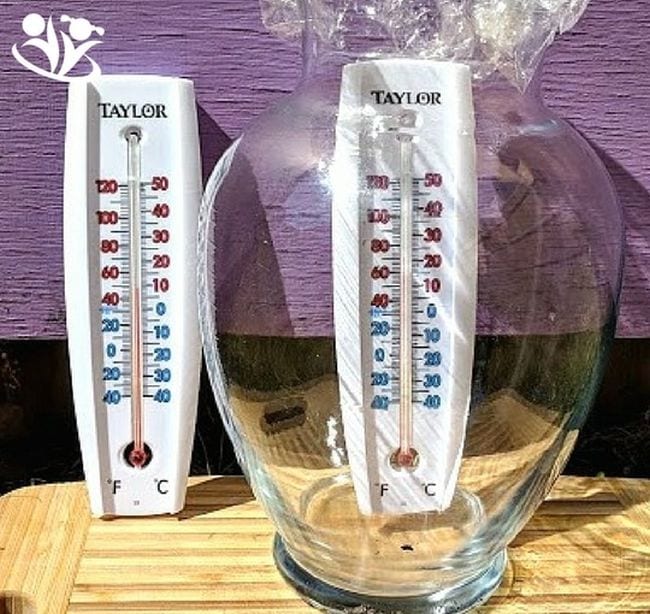
Global warming is a key component of climate change, and it’s caused in part by an enhanced greenhouse effect. Climate change activities like this one show kids just what that term means. Place two thermometers side by side in a sunny spot. Put one inside a covered glass jar, and leave the other one outside. Observe the temperatures after about 20 minutes to see which is higher. Learn more about this activity at Kid Minds.
5. Meet the greenhouse gases
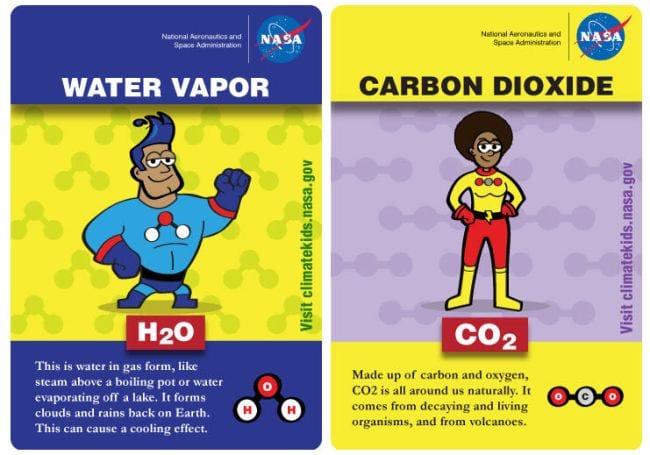
Now that kids have seen the greenhouse effect in action, introduce them to the gases that make it happen. These fun trading cards of the six major atmospheric gases teach students what they are and where they come from. Each card has two sides, showing the positive and negative effects of that gas. Get the free printable cards from NASA here.
6. Make edible greenhouse gas models
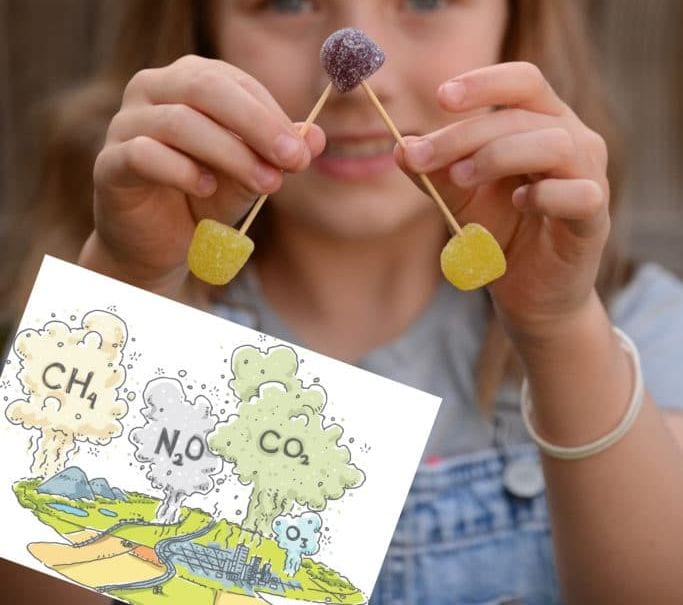
Dive deeper into the chemistry of greenhouse gases by making edible models from toothpicks and gumdrops. Science Sparks has all the details.
7. Do a climate change word search

Try this free printable word search to reinforce the terms kids are learning during climate change activities. It’s part of this larger free lesson plan from Woo Jr.
8. Eat some Earth toast

Show kids how too much heat can make things (like deserts and other inland areas) hotter and drier with this fun edible experiment. Kids use milk paint to create “Earth” from bread, then bake it in a toaster oven to see what happens. Learn more from Left Brain Craft Brain.
9. Learn about conditions affecting ice melt
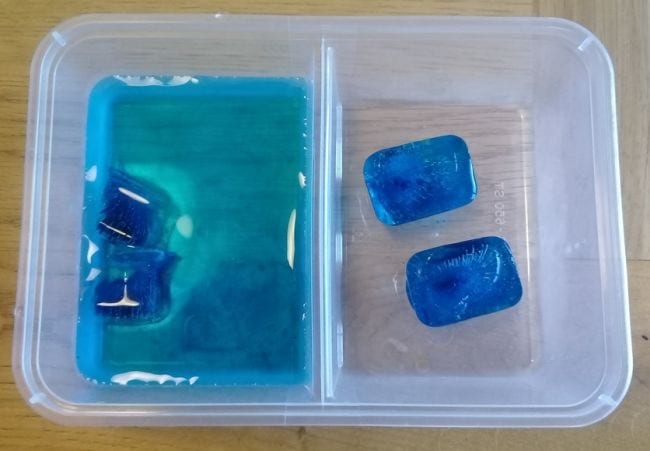
The accelerated melting of the polar ice caps and glaciers is of huge concern to climate change scientists. This simple experiment shows how ice in water melts faster than ice on land. Find out more from Science Learning Hub.
10. Explore how melting ice affects sea levels
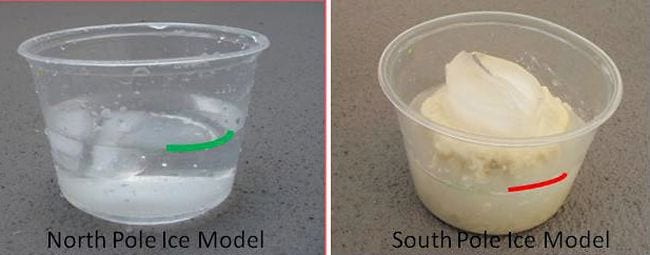
The North Polar Ice Cap sits on water, while the South Polar Ice Cap is on land. Learn which of these two can cause sea levels to rise with this experiment, perfect for a science fair project. Get the how-to from Science Buddies.
11. Simulate melting polar ice caps and icebergs
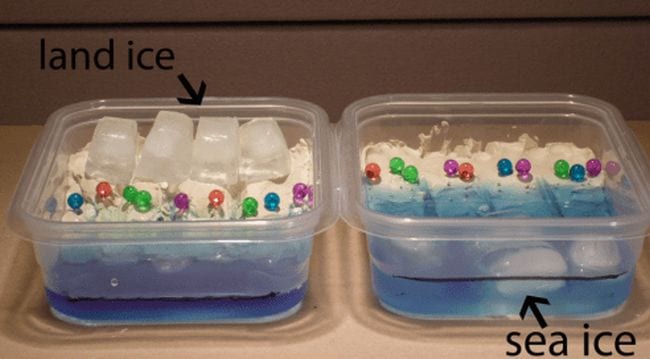
Ice-melting experiments are very helpful climate change activities for seeing sea level rise in action, so here’s another one to try. If you’re unable to perform this one in person, show National Geographic’s video instead.
12. Discover how melting sea ice affects animals too
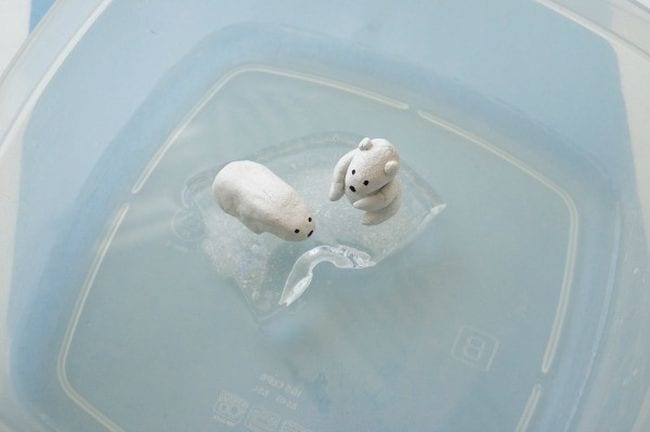
Humans aren’t the only ones affected by global warming and sea ice melt. In this experiment, kids try to help model polar bears stay afloat as the ice around them starts to melt. Learn more from Kitchen Counter Chronicle.
13. Trap particles to learn about air pollution
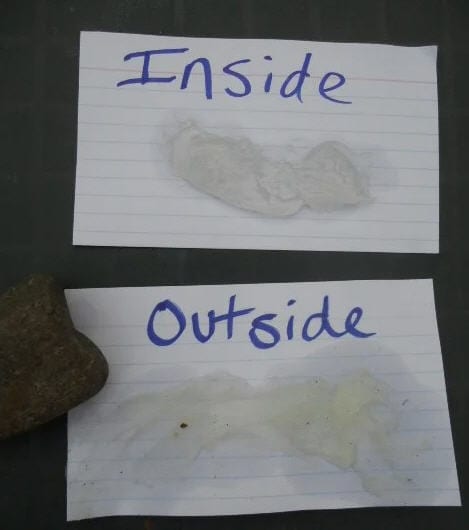
Particulates in the air are another cause of global warming and climate change. This experiment uses Vaseline and index cards to capture visible particulates from indoor and outdoor spaces, so students can compare them. Get the details at Education.com.
14. Water plants with acid solutions
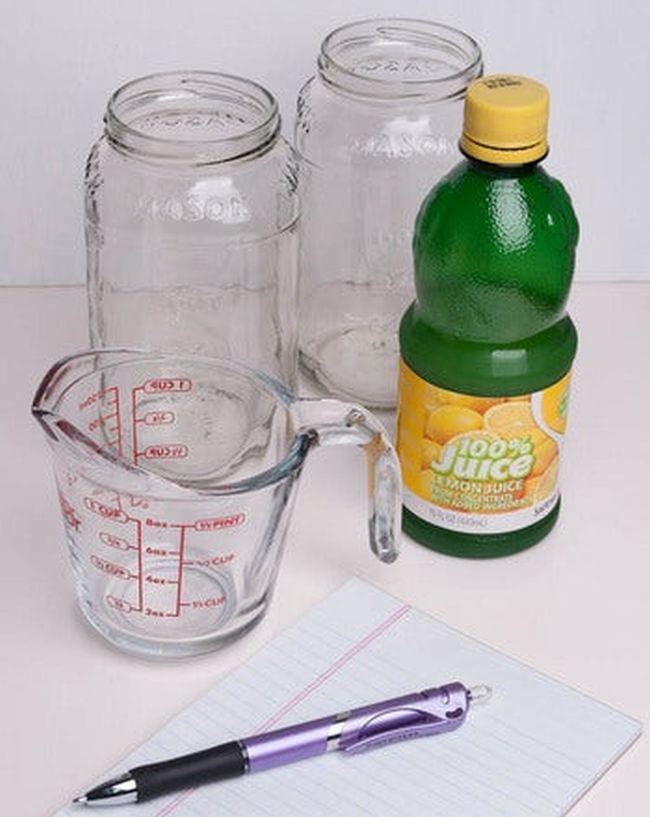
Acid rain isn’t in the news as much these days, thanks to the incredible effectiveness of the EPA’s Acid Rain Program. It’s still good for kids to learn about, though, since when unchecked, it can do real damage to plants and the environment. Try this experiment, in which kids water plants with regular water and a lemon juice–water solution, to see the effects. Learn how it works from Education.com.
15. Play the Carbon Cycle Game
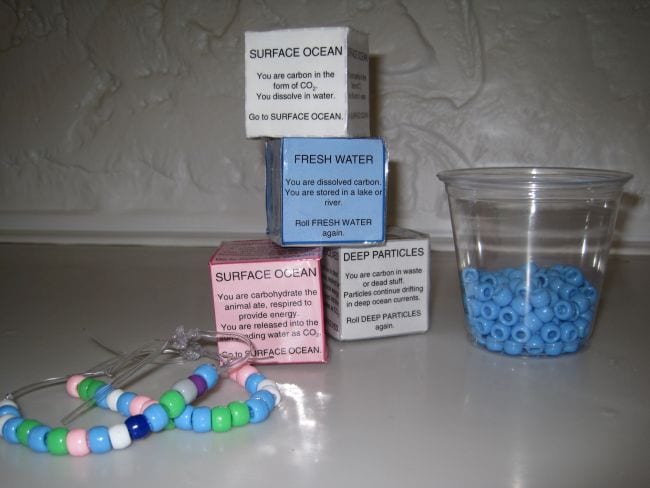
Carbon is another big contributor to global warming and climate change. Learn how the natural carbon cycle works, and how too much carbon throws the cycle off, with this free printable game from COSEE.
16. Track your carbon footprint
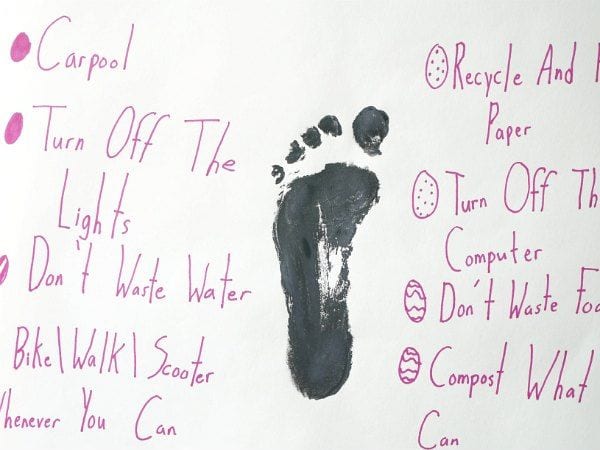
Good climate change activities should include action items kids and their families can take. Explore the term “carbon footprint” and then brainstorm ways to reduce it with this cute idea from Kitchen Counter Chronicle.
Ready to do your part? Check out our big collection of Recycling Activities for Kids.
Plus, check out 20 Wild Ways To Explore Animal Habitats.
Looking for more articles like this? Subscribe to our newsletters to find out when they’re posted!
